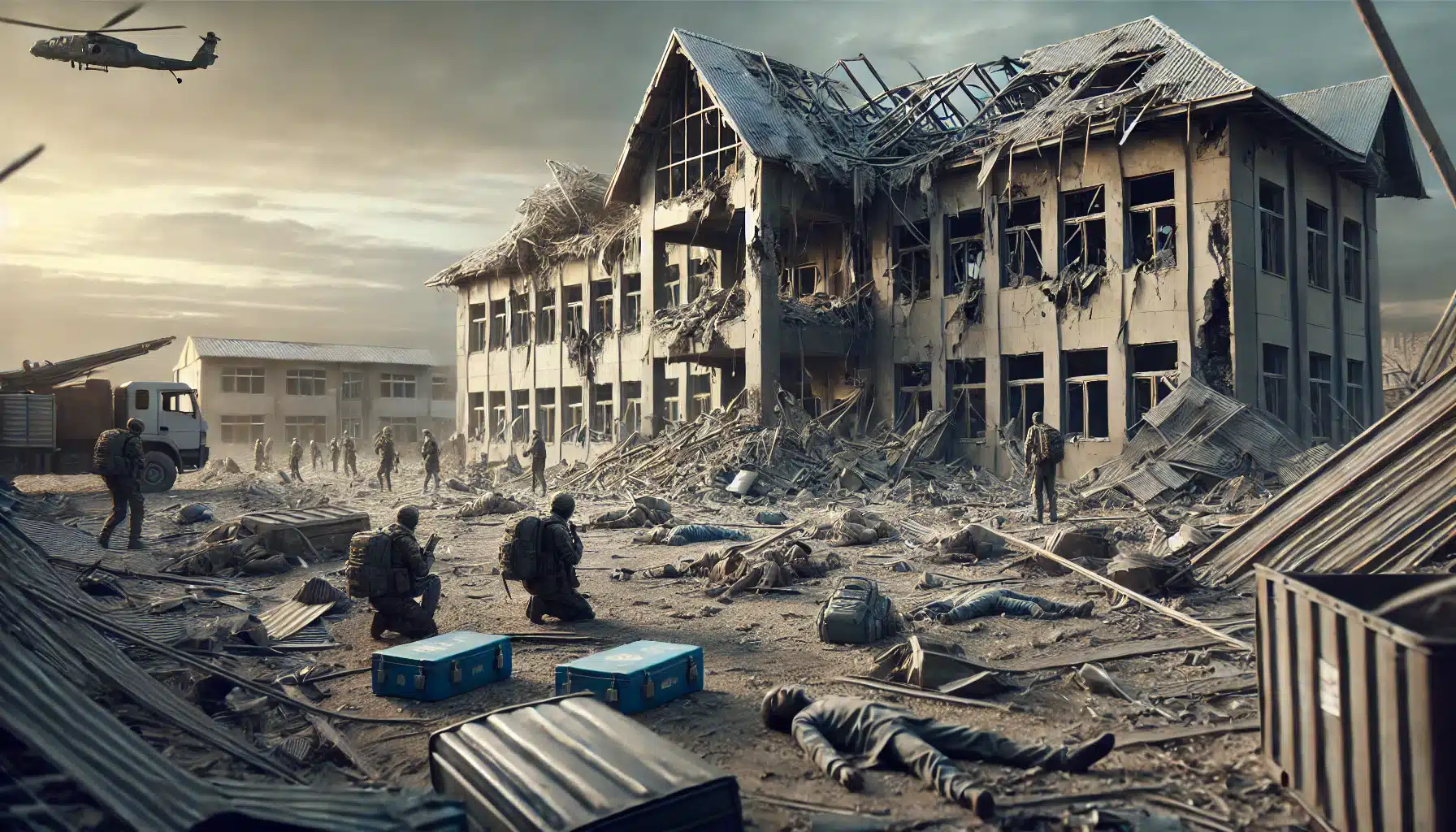At least 18 people, including six UNRWA staff members, were killed in an Israeli airstrike on a UN school sheltering displaced civilians in Gaza. The attack has drawn international condemnation, with leaders calling it a clear violation of international humanitarian law. As Israel claims the strike

In a recent airstrike on Gaza, Israel has bombed a UN school sheltering displaced civilians, killing at least 18 people, including six UNRWA staff members. The strike, which took place on Wednesday night, targeted the al-Jaouni school in Nuseirat, which houses around 12,000 displaced people, mostly women and children. This incident adds to the growing toll of civilian casualties in the ongoing conflict. Both the United Nations and international leaders have strongly condemned the attack, calling for the protection of civilians and humanitarian workers under international law.
Incident Overview:
- Location: Al-Jaouni School, Nuseirat, Gaza
- Fatalities: 18 people, including the shelter manager and five UNRWA staff members
- Displacement: The school was home to around 12,000 displaced civilians, mainly women and children.
International Condemnation:
- UN Secretary-General António Guterres called the attack “totally unacceptable”, condemning the violation of international humanitarian law: “These dramatic violations of international humanitarian law need to stop now.”
- EU’s Top Diplomat, Josep Borrell expressed outrage, stating that the disregard for civilian protection should not be tolerated by the international community: “The disregard of the basic principles of international humanitarian law, especially protection of civilians, cannot and should not be accepted by the international community.”
- US Secretary of State Antony Blinken highlighted Washington’s continued calls for Israel to take more steps to protect humanitarian sites: “We need to see humanitarian sites protected,” Blinken said during his visit to Poland.
- Germany’s Foreign Ministry also condemned the attack, urging Israel to ensure the safety of UN staff and aid workers.
Background of the Conflict:
- The United Nations Relief and Works Agency (UNRWA) has converted schools across Gaza into shelters for civilians displaced by Israeli airstrikes and ground operations.
- Approximately 90% of Gaza’s population is displaced, with many moving frequently in attempts to survive the conflict.
- Israel claims the strike was directed at a Hamas command and control center within the school but has not provided any evidence to support this. Israel has repeatedly bombed schools used as shelters, accusing militants of using civilians as human shields.
Previous Attacks and Casualties:
- The recent airstrike marks the deadliest incident for UNRWA staff since the war began, with previous attacks killing hundreds of civilians in schools.
- UNRWA confirmed the deaths of its staff members, stating, “This is the highest death toll among our staff in a single incident. Among those killed was the manager of the UNRWA shelter and other team members providing assistance to displaced people.”
- As of this incident, a total of 220 UNRWA staff have been killed in Gaza since the conflict began.
Impact on Gaza’s Population:
- A UN survey in July revealed that more than four in five schools in Gaza have been either hit or severely damaged, and the region’s 650,000 children have been unable to attend school for almost a year.
- Many civilians have no option but to remain in these school shelters, despite the repeated attacks.
- Basil Amarneh, from Gaza’s al-Aqsa hospital, described the situation: “Most of the people took refuge in schools and the schools were bombed. Where will people go?” he asked.
- Earlier on Wednesday, an airstrike in Khan Younis killed six siblings, aged 21 months to 21 years, along with five others, further contributing to the rising civilian death toll.
Health Crisis and Rehabilitation Needs:
- The war, ongoing for over 11 months, has claimed more than 41,000 lives in Gaza, with the majority being civilians, including women, children, and the elderly.
- Over 95,000 people have been wounded, with around 25% suffering life-changing injuries, including amputations.
- The World Health Organization (WHO) warned that at least 22,500 people would require long-term rehabilitation, but Gaza’s healthcare system, already devastated, has little capacity to offer such care: “The huge surge in rehabilitation needs occurs in parallel with the ongoing decimation of the health system,” said Rik Peeperkorn, WHO’s representative for the Palestinian territories.
Ongoing War and Ceasefire Efforts:
- Despite repeated attempts to negotiate a second ceasefire, both sides have accused each other of sabotage.
- Hamas recently stated that it is ready to implement an “immediate” ceasefire based on a US proposal made in June.
Source: The Gaurdian





